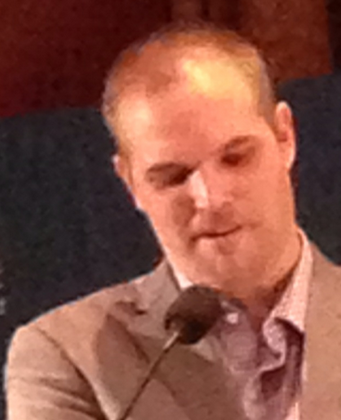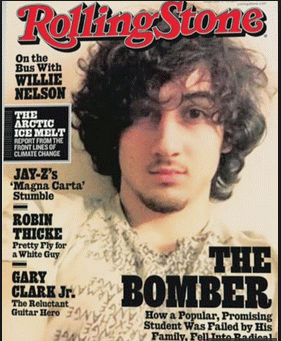I grew up in the Boston area, spent my whole early life there. To this day I'm a maniacal fan of Boston sports teams -- in fact, I was moved to write this column when (to my great distress) I heard my employers being bashed on the Mut & Merloni show on WEEI, one of Boston's two main sports talk stations, one of the places I turn to not think about the news.
I'm from Boston, but I also lived for almost 10 years in Moscow, Russia, where Chechen terrorist attacks were routine and a very real threat to the public on a daily basis. In fact, in the summer of 1999, I missed being blown up in a Chechen bombing of a Moscow subway station by just a few minutes. So I have no love for Chechen terrorists.
I also have tremendous sympathy and sadness for the victims in Boston of the recent attack, for the whole city in fact. Having spent such a long period of my life in the shadow of Chechen terrorism in Russia, I was mortified when it seemed that that war had arrived in my hometown.
Jahar's World: The Making of a Monster
I was particularly upset to learn that Dzhokhar Tsarnaev had spent time at UMass-Dartmouth, a place where my friends and I would ride bikes as kids to shoot baskets or play touch football, back when it was called SMU, or Southern Massachusetts University -- the school was right next to my home in Westport, Mass. I felt violated when I saw the TV images of the campus on TV after the attacks, and it's still hard for me to accept that Tsarnaev was ever anywhere near that part of the world, which is so special to me.
Anyway, I heard about the Rolling Stone cover controversy before I even saw the cover or read the magazine. I have to admit I was initially a little rattled when emailers told me my employers had "done a sexy photo shoot for Tsarnaev" and "posed him like Jim Morrison." I've known the editors of this magazine for over a decade now and didn't believe this could be true, but people get all kinds of surprises in life -- you hear about people married for years before they find out the husband has a cache of Nazi paraphernalia in his basement, or the wife was previously a male state trooper from Oklahoma, or something -- so I guess you can never really know.
Then I actually saw the Tsarnaev cover, and honestly, I was stunned. I think the controversy is very misplaced. Having had a few days to listen to all of the yelling, the basis of all of this criticism seems to come down to two points:
" Putting Dzhokhar Tsarnaev on the cover of Rolling Stone automatically glamorizes him, because the cover of Rolling Stone is all by itself a piece of cultural iconography that confers fame and status.
" The photo used in the cover makes Tsarnaev out to be too handsome. He's not depicted with a big red X through his face a la Time magazine's treatment of bin Laden, or with his eyes whited out as in Newsweek's depiction of same, or with a big banner headline like "NOW KILL HIS DREAM" like the one employed by The Economist in its bin Laden cover . He is called a "Monster" in the headline, but the word is too subtle and the font used is too small, making this an unacceptably ambiguous depiction of a terrorist.
I think, on the whole, the people leveling these criticisms must not read the magazine, which is understandable. It would be beyond unreasonable to expect everyone in the country to be regularly familiar with the articles in Rolling Stone. On the other hand, pretty much everyone has heard of Rolling Stone, which is where the problem lay, in this gap between the popular image of the magazine and the reality of its reporting.
If indeed we were just a celebrity/gossip mag that covered nothing but rock stars and pop-culture icons, and we decided to boost sales and dabble in hard news by way of putting a Jim Morrison-esque depiction of a mass murderer on our cover, that really would suck and we would deserve all of this criticism.
But Rolling Stone has actually been in the hard news/investigative reporting business since its inception, from Hunter S. Thompson to Carl Bernstein to Bill Greider back in the day to Tim Dickinson, Michael Hastings, Mark Boal, Janet Reitman and myself in recent years.
One could even go so far as to say that in recent years, when investigative journalism has been so dramatically de-emphasized at the major newspapers and at the big television news networks, Rolling Stone's role as a source of hard-news reporting has been magnified. In other words, we're more than ever a hard news outlet in a business where long-form reporting is becoming more scarce.
(Note: You can view every article as one long page if you sign up as an Advocate Member, or higher).






